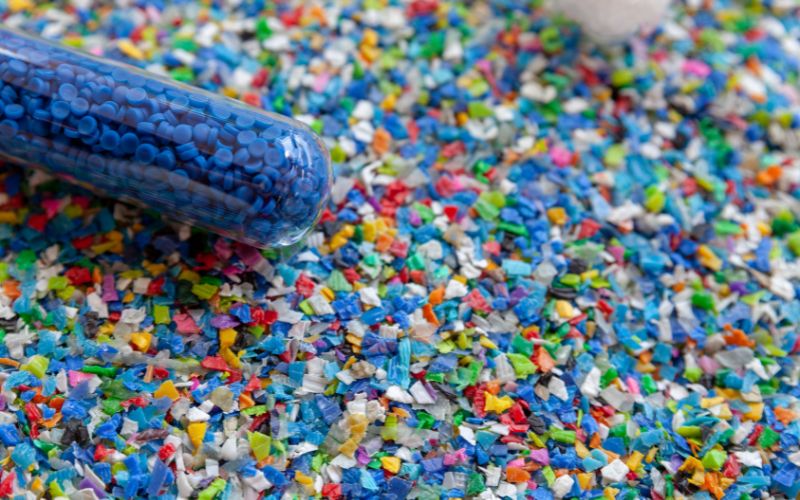Plastic recycling has become increasingly important as the world grapples with the environmental impact of plastic waste. Innovations in recycling technologies are essential for improving the efficiency, effectiveness, and sustainability of plastic waste management. These advancements encompass various approaches, from mechanical recycling to chemical processes, aiming to transform plastic waste into valuable raw materials and reduce dependency on virgin plastics. Here’s an exploration of some of the technological innovations revolutionizing plastic recycling today.
Mechanical Recycling
Process Overview
Mechanical recycling is the most common method for recycling plastics. It involves sorting, cleaning, shredding, melting, and pelletizing plastic waste to produce recycled plastic pellets or flakes. These pellets can then be used to manufacture new plastic products, reducing the demand for virgin plastics and diverting plastic waste from landfills and incineration.
Advancements
Recent advancements in mechanical recycling technologies have focused on improving sorting techniques, enhancing the purity of recycled materials, and increasing processing efficiency. Innovations such as optical sorting systems, robotic sorting technologies, and advanced shredding and washing techniques have enabled higher throughput and improved quality in recycled plastic output.
Chemical Recycling
Process Overview
Chemical recycling, also known as advanced or tertiary recycling, involves breaking down plastic waste into its chemical building blocks or converting it into liquid fuels through chemical processes. Unlike mechanical recycling, which melts and reshapes plastic, chemical recycling breaks down the polymer chains, enabling a broader range of plastics to be recycled, including mixed and contaminated plastics that are challenging to recycle mechanically.
Advancements
Recent advancements in chemical recycling technologies include pyrolysis, depolymerization, and gasification processes. Pyrolysis, for example, heats plastic waste in the absence of oxygen to break it down into gases, oils, and char. These products can then be refined and used as feedstocks for new plastics, chemicals, or fuels. Depolymerization processes use catalysts to chemically degrade plastics into monomers, which can then be purified and polymerized back into high-quality plastics.
Biological Recycling (Biodegradation and Bioplastics)
Process Overview
Biological recycling involves using biological agents, such as microorganisms, enzymes, or composting processes, to break down plastic waste into natural compounds like water, carbon dioxide, and biomass. This approach is particularly relevant for biodegradable plastics and certain types of compostable plastics designed to degrade in specific environments, such as industrial composting facilities or marine environments.
Advancements
Advancements in biological recycling technologies include the development of enhanced biodegradable plastics that degrade more efficiently in various environments. Research focuses on optimizing the degradation rates and end-of-life options for bioplastics, ensuring they break down into harmless byproducts without leaving harmful residues or microplastics in the environment.
Innovative Applications and Materials
Recycled Content in Products
Technological innovations are enabling the incorporation of recycled plastics into a wider range of products, including packaging, automotive parts, construction materials, and consumer goods. Advances in material science and engineering are improving the performance, durability, and aesthetics of products made from recycled plastics, promoting circular economy principles and reducing environmental impact.
Blockchain and Traceability
Emerging technologies like blockchain are being explored to enhance traceability and transparency in the recycling supply chain. Blockchain can track recycled materials from collection through processing to final product manufacturing, providing verifiable data on the origin and composition of recycled plastics. This helps build trust among stakeholders and incentivizes greater investment in recycling infrastructure and practices.
Challenges and Future Outlook
Despite these advancements, challenges remain in scaling up recycling technologies, improving collection and sorting infrastructure, and overcoming economic barriers associated with recycling. Collaboration among governments, industries, research institutions, and consumers will be crucial for overcoming these challenges and accelerating the adoption of innovative recycling technologies.
Conclusion
Technological innovations in plastic recycling hold tremendous promise for addressing the global plastic waste crisis. By advancing mechanical, chemical, and biological recycling processes, and exploring new applications and materials, we can create a more sustainable and circular economy for plastics. Continued research, investment in infrastructure, and collaboration across sectors will be essential in realizing the full potential of these innovations and achieving significant reductions in plastic pollution worldwide.


